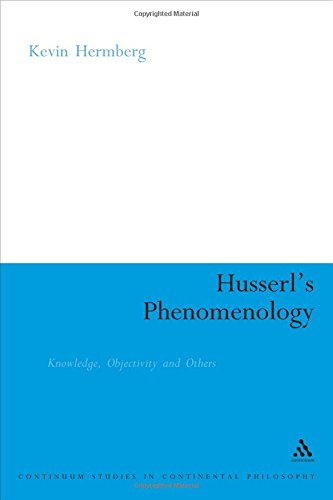

Most ebook files are in PDF format, so you can easily read them using various software such as Foxit Reader or directly on the Google Chrome browser.
Some ebook files are released by publishers in other formats such as .awz, .mobi, .epub, .fb2, etc. You may need to install specific software to read these formats on mobile/PC, such as Calibre.
Please read the tutorial at this link. https://ebooknice.com/page/post?id=faq
We offer FREE conversion to the popular formats you request; however, this may take some time. Therefore, right after payment, please email us, and we will try to provide the service as quickly as possible.
For some exceptional file formats or broken links (if any), please refrain from opening any disputes. Instead, email us first, and we will try to assist within a maximum of 6 hours.
EbookNice Team

Status:
Available4.6
30 reviewsKevin Hermberg's book fills an important gap in previous Husserl scholarship by focusing on intersubjectivity and empathy (i.e., the experience of others as other subjects) and by addressing the related issues of validity, the degrees of evidence with which something can be experienced, and the different senses of 'objective' in Husserl's texts. Despite accusations by commentators that Husserl's is a solipsistic philosophy and that the epistemologies in Husserl's late and early works are contradictory, Hermberg shows that empathy, and thus other subjects, are related to one's knowledge on the view offered in each of Husserl's Introductions to Phenomenology. Empathy is significantly related to knowledge in at least two ways, and Husserl's epistemology might, consequently, be called a social epistemology: (a) empathy helps to give evidence for validity and thus to solidify one's knowledge, and (b) it helps to broaden one's knowledge by giving access to what others have known. These roles of empathy are not at odds with one another; rather, both are at play in each of the Introductions (if even only implicitly) and, given his position in the earlier work, Husserl needed to expand the role of empathy as he did. Such a reliance on empathy, however, calls into question whether Husserl's is a transcendental philosophy in the sense Husserl claimed.